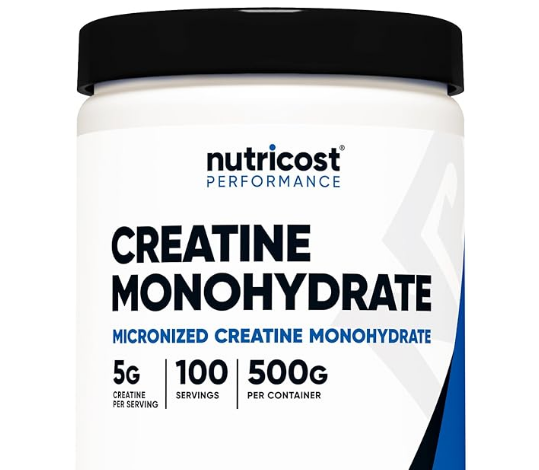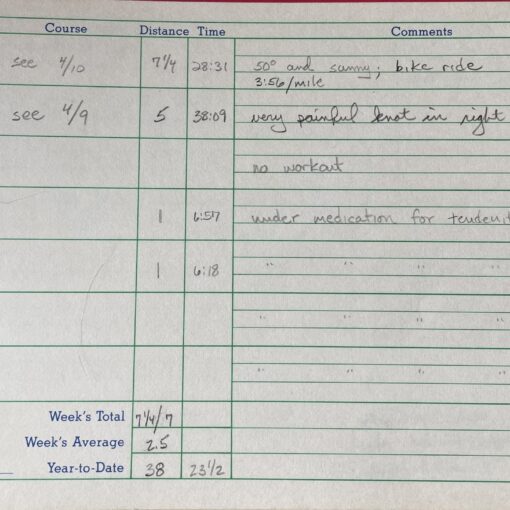Among the best performance supplements for runners are creatine, beetroot juice, caffeine, and beta-alanine, all of which I use, as well as high-quality protein for recovery and repair. Training 7 days a week at 74 isn’t easy, but if train sensibly, nourish my body properly and use these performance supplements, it is definitely doable. Scroll down to learn more about each of these runners supplements and start using the ones that best serve your needs.
The Best Performance Supplements for Runners
In the world of running, every second counts. Whether you’re a seasoned marathoner chasing a new personal best or a weekend warrior looking to make your daily jog a little easier, you’re likely always on the lookout for an edge. While a solid training plan and a balanced diet are the cornerstones of any successful running regimen, certain supplements can provide a significant, science-backed boost to your performance and recovery.
But with a market flooded with powders, pills, and potions all promising to make you faster and stronger, it can be tough to separate the hype from the helpful. This guide cuts through the noise to bring you the best performance supplements for runners, backed by scientific evidence.
Creatine: More Than Just for Lifters
Long associated with bodybuilders and strength athletes, creatine is now stepping into the spotlight for its proven benefits for runners, particularly in shorter, high-intensity efforts.
How it Works: Creatine is a naturally occurring compound that helps your muscles produce energy during high-intensity exercise. By supplementing with creatine, you can increase your body’s stores of phosphocreatine, which in turn helps to rapidly regenerate ATP, the primary energy currency of your cells.
The Runner’s Edge: For runners, this translates to improved performance in activities like sprinting, hill repeats, and the final kick at the end of a race. Studies have shown that creatine can enhance power output and reduce fatigue during repeated bouts of intense effort.
Dosage: A typical loading phase involves taking 20 grams per day (split into four 5-gram doses) for 5-7 days, followed by a maintenance dose of 3-5 grams per day. Alternatively, you can skip the loading phase and simply take the maintenance dose, which will saturate your muscles over a longer period.
Beetroot Juice: The Nitrate Powerhouse
This vibrant vegetable is more than just a salad ingredient; it’s a potent source of nitrates, which can have a remarkable impact on your running endurance.
How it Works: When you consume nitrates from sources like beetroot juice, your body converts them into nitric oxide. Nitric oxide plays a crucial role in vasodilation, which is the widening of your blood vessels. This increased blood flow allows for more efficient oxygen and nutrient delivery to your working muscles.
The Runner’s Edge: The primary benefit for runners is improved cardiovascular efficiency. Studies have consistently shown that nitrate supplementation can reduce the oxygen cost of exercise, meaning you can run at a given pace with less effort. This can lead to improved time to exhaustion and better performance in endurance events.
Dosage: For best results, consume 300-600mg of nitrates (found in about 500ml of beetroot juice) 2-3 hours before your run. Some studies suggest that daily consumption for several days leading up to a key race may provide even greater benefits.
Caffeine: The Tried-and-True Performance Enhancer
It’s the morning ritual for millions, but that cup of coffee can also be a powerful tool in your running arsenal.
How it Works: Caffeine is a central nervous system stimulant that can reduce your perception of effort, making your runs feel easier. It also has been shown to enhance fat oxidation, sparing your precious glycogen stores for later in your run.
The Runner’s Edge: The benefits of caffeine for runners are well-documented and include improved endurance, reduced fatigue, and enhanced mental alertness. It can be particularly beneficial during long runs and races.
Dosage and Timing: The general recommendation is 3-6 milligrams of caffeine per kilogram of body weight, taken 30-60 minutes before exercise. For a 150-pound (68kg) runner, this equates to roughly 200-400mg of caffeine. Experiment with what works best for you, as individual tolerance can vary.
Beta-Alanine: Buffer the Burn
If you’ve ever felt that familiar burning sensation in your muscles during a hard effort, beta-alanine might be the supplement for you.
How it Works: Beta-alanine is an amino acid that combines with histidine in your muscles to form carnosine. Carnosine acts as a buffer against the buildup of hydrogen ions, which are a major contributor to muscle fatigue and that “burning” sensation during high-intensity exercise.
The Runner’s Edge: By increasing your muscle carnosine levels, beta-alanine can help delay the onset of fatigue during intense running efforts lasting from one to four minutes. This makes it particularly useful for middle-distance runners and for improving performance in interval workouts.
Dosage and Side Effects: The recommended daily dose is 4-6 grams, often split into smaller doses to minimize a common side effect known as paresthesia, a harmless tingling sensation in the skin. Like creatine, it takes time to build up effective levels in your muscles, so consistent daily intake is key.
Protein: The Foundation of Recovery and Performance
While often seen as a recovery supplement, adequate protein intake is crucial for supporting your running performance.
How it Works: Running causes microscopic tears in your muscle fibers. Protein provides the essential amino acids your body needs to repair this damage and build stronger, more resilient muscles.
The Runner’s Edge: Consuming enough protein helps to prevent muscle breakdown, supports adaptation to your training, and enhances recovery, allowing you to train more consistently and effectively.
Dosage and Timing: Runners have higher protein needs than sedentary individuals, with recommendations typically ranging from 1.2 to 1.7 grams of protein per kilogram of body weight per day. Consuming a source of protein (around 20-30 grams) within 30-60 minutes after a run can be particularly beneficial for kick-starting the recovery process. Good sources include whey or plant-based protein powders, Greek yogurt, eggs, and lean meats.
A Final Word on Supplements
It’s important to remember that supplements are just that—supplementary to a healthy diet and a smart training plan. Before incorporating any new supplement into your routine, it’s always a good idea to consult with a doctor or a registered dietitian, especially if you have any underlying health conditions.
By strategically and safely incorporating these evidence-backed supplements into your nutrition plan, you can give yourself a valuable edge, helping you to run faster, feel stronger, and recover more effectively. So lace up your shoes, fuel up wisely, and get ready to conquer your next run.




